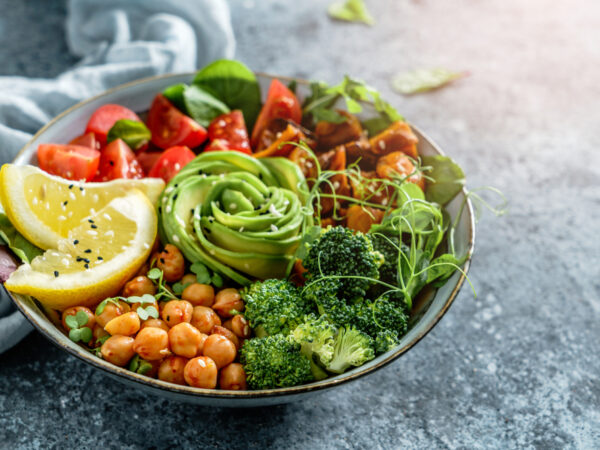Over the past decade, “clean eating” has become one of the most popular—and sometimes controversial—phrases in the world of nutrition. But what began as a well-intentioned movement encouraging healthier food choices has evolved and matured over time. Now, in 2025, clean eating means something more balanced, inclusive, and evidence-based than ever before.
So, what does “clean eating” really mean in 2025? Let’s unpack the concept and explore how it has shifted to better reflect modern health priorities, sustainability, and individual well-being.
From Restriction to Balance
Originally, clean eating was associated with strict food rules—avoiding anything processed, cutting out sugar entirely, or eliminating whole food groups like dairy or grains. In many ways, it became synonymous with “diet culture” and left people feeling guilty for eating anything that wasn’t organic or made from scratch.
But in 2025, clean eating is no longer about being perfect. It’s about balance, not restriction. People are moving away from all-or-nothing mindsets and focusing more on what they can add to their diets rather than what they must remove. Whole grains, lean proteins, healthy fats, and plenty of fruits and vegetables form the foundation, but there’s also room for enjoyment—whether that’s a piece of chocolate, a slice of pizza, or your favorite packaged snack.
Prioritizing Whole, Minimally Processed Foods
At its core, clean eating still emphasizes whole, minimally processed foods. The goal isn’t to demonize all processed items—after all, frozen vegetables, canned beans, and nut butters are technically processed but can still be incredibly healthy. The focus is on avoiding ultra-processed foods that are high in refined sugars, unhealthy fats, and artificial additives, and offer little nutritional value.
In 2025, clean eating encourages choosing foods that are as close to their natural state as possible. Think homemade meals with fresh ingredients, snacks made from real food (like nuts, seeds, and dried fruits), and beverages like infused water or herbal teas instead of sugary sodas.
Sustainability Is Now Part of the Equation
One of the biggest updates to the clean eating philosophy in 2025 is its environmental awareness. More people are asking not only “Is this food good for me?” but also “Is it good for the planet?”
Sustainable eating—choosing foods that are responsibly sourced, locally grown, and lower in environmental impact—has become an essential part of clean eating. Plant-based meals, seasonal produce, and reducing food waste are key components. Clean eating now includes being mindful of where your food comes from and how it affects ecosystems, animals, and future generations.
Mindful and Intuitive Eating
In 2025, clean eating has also embraced the principles of mindful and intuitive eating. It’s not just about what you eat, but how and why you eat it. This means:
- Paying attention to hunger and fullness cues
- Eating without distraction
- Savoring flavors and textures
- Letting go of food guilt
Mindful eating helps people develop a healthier relationship with food, which is especially important in a world where stress, social media, and busy lifestyles can lead to mindless snacking or emotional eating.
Inclusivity Over Perfection
Clean eating in 2025 is inclusive and personalized. There is no one-size-fits-all approach. What’s clean for one person might look different for another, depending on their culture, health needs, budget, and preferences. This modern view rejects rigid rules and embraces flexibility.
It’s also more culturally aware. Traditional foods from around the world—like fermented kimchi, lentil dal, or Mediterranean olive tapenade—are celebrated as part of clean eating, not excluded.
Final Thoughts
In 2025, clean eating is less about rules and more about respect—for your body, your mind, your culture, and the planet. It’s a holistic, compassionate approach to food that values nourishment, sustainability, and joy. By focusing on quality over perfection and being mindful rather than obsessive, clean eating has become a lifestyle that supports long-term health and happiness—without the guilt.
Discover more through these resources :
https://familyhousepai.com/
https://familleeducation.org/
https://gotomariko.com/
https://jetaport.com/
https://theloverspoint.com/
https://godblogcon.com/
https://leadershipeditors.com/
https://wahcbd.com/
https://exclusivenewstoday.com/
https://premiobrasilambiental.com/
https://youarebeingwatched.us/
https://kidsearnmoney.co/
https://newportbluesfestival.co.uk/
https://maitreyarelictour.com/
https://sandranews.com/
https://cryptexplorer.com/
https://offiice-officecom.com/
https://revisedtruth.com/
https://balarindangnews.com/
https://creativehomestaging.net/
https://pokercewek.org/
https://israup.net/
https://mx-df.net/
https://inewsiran.com/
https://madeinitalytravel.com/
https://i-mpressmta.com/
https://amarillaautomotores.com/
https://newstotop.com/

